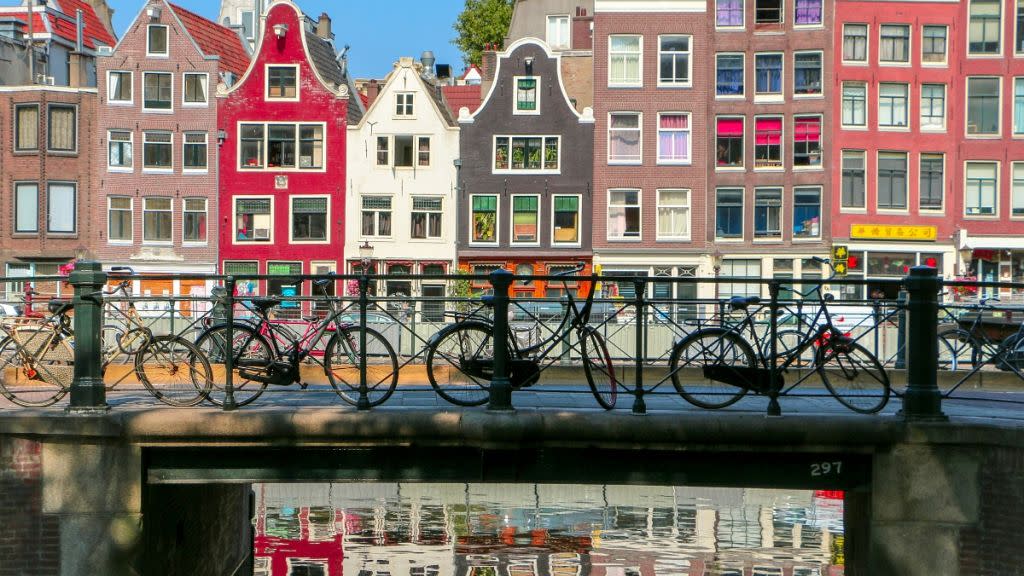Amsterdam plans to ban cruise ships from the city centre - what will it mean for tourists?

Amsterdam is taking new steps to fight back against overtourism by launching plans to relocate its passenger cruise terminal to outside of the city centre.
By 2035, none of the boats will be able to dock in the iconic capital.
The announcement comes amid plans aiming to almost halve the number of cruise ships allowed to dock at the Passenger Terminal Amsterdam (PTA).
Currently, the amount permitted is 190, but that’s slated to go down to a maximum of 100 from 2026.
It’s been agreed that Rotterdam in the south will take more than 40 ships not welcome in Amsterdam from 2026.
Fed up with hoards of cruise passengers, Alaska residents are calling for ‘ship-free Saturdays’
From Valrhona chocolate to Vincent van Gogh: The best stop-offs along a French river cruise
Why have Amsterdam’s authorities made this decision?
By 2027, any boats in the Amsterdam terminal will be required to use shore power only to lessen their environmental impact.
“With these measures, the city is implementing the municipal council’s wish to put an end to the cruise terminal in Amsterdam,” a spokesperson for Amsterdam City Council said, “Banning cruise ships is also part of a broad package of measures to limit the growth of tourism and combat nuisance.”
The city’s deputy mayor Hester van Buren added: “Sea cruising is a polluting form of tourism and contributes to crowds and emissions in the city. By limiting sea cruises, requiring shore power and aiming for the cruise terminal [PTA] to move from its current location in 2035, the council is responsibly implementing the council’s proposal to stop sea cruises.”
What will the ban mean for Amsterdam as a tourism hub?
While the plans will no doubt help with improving the environmental conditions in Amsterdam, there are concerns that income generated by tourism will see a sharp drop-off.
It’s thought that, by lessening the number of cruise passengers and shipping companies in the city, museums, restaurants, shops and tour companies might lose out.
Amsterdam’s city council has acknowledged this potential issue.
“For the city this means less income because less tourist tax is collected, and because of a lower dividend payment as a shareholder of the port authority,” a spokesperson says. “The financial consequences of the decision will be included in the next budget memorandum. No consequences of this decision are yet expected in the 2025 budget.”
Currently, cruises bring around €105 million in economic benefits annually to the city and, despite the planned relocation, experts say that’s unlikely to change too much.
Amsterdam receives some 21 million visitors every year - and just one per cent of that number arrive by cruise ship.
Even if passengers aren’t dropped off right in the city centre, they’ll still be able to visit thanks to the Netherlands’ world-class public transport system.

 Yahoo News
Yahoo News 
